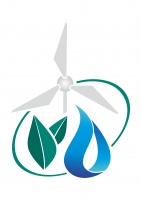Comparison of practices
| Название практики | Increasing water supply of Aksa-Ayuliye District | Капельное орошение кукурузы в условиях Гиссарской долины |
|---|---|---|
| Category | Water resources | Water resources |
| Tool | System for enhancing water availability | Drip irrigation system |
| Field of application | Use of water resources |
|
| Usability of practice for adaptation to climate change | Moderate | High |
| Implemented by | UNDP, UNECE and Water Resources Committee of the Ministry of Agriculture of the RK jointly with the Public Association “Association of Country Farms of Shet Dis-trict of Karaganda Region” |
НПО Таджикский научно-исследовательский институт гидротехники и мелиорации («ТаджикНИИГиМ») |
| Used by |
Country: Kazakhstan Province: Karaganda Region District: Shet District Other settlement: Aksa-Ayuliye Rural District |
Country: Tajikistan Province: Districts of Republican Subordination District: Rudaki Other settlement: Хозяйство им. Раджабова |
| Local specifics | The site is located in the area of acute shortage of irrigation and drinking water |
|
| Practice usage period |
Start date: 01.01.2015 End date: 31.12.2015 |
Start date: 01.01.2000 End date: 31.12.2003 |
| Problem solved through this practice | Acute shortage of irrigation water |
Нехватка оросительной воды, низкая урожайность, низкий КПД полива, эродированность почвы, низкий доход фермеров. |
| Tools used in the practice | Measures to restore natural springs: arrangement of stone protection fencing around springs and installation of water-release pipes |
Система капельного орошения кукурузы. |
| Description of the practice and its results | Actions Results Technical |
Мероприятия: • Составление проекта и сметы, закупка системы капельного орошения; Результаты: Финансово-экономические: Экологические: Технические: Социальные: |
| Lessons learnt and recommendations made | Lessons learnt: Recommendations: |
Уроки: Применение системы капельного орошения обеспечивает повышение урожайности кукурузы, экономию оросительной воды, улучшение структуры почвы, КПД полива и т.д. Рекомендации: Необходимо широко внедрять системы капельного орошения, позволяющие повышению продуктивности водно-земельных ресурсов, снижению затрат ручного труда и экономию оросительной воды. |
| Source of practice | Domestic tools (outcomes of research by domestic R&D organizations) |
Отечественные инструменты (результат разработок отечественных научно-исследовательских структур) |
| Readiness for implementation |
1. Cost of implementation: High 2. Approximate cost of investment per 1 ha: 3. O&M costs: High 4. Expert support: Not needed |
1. Cost of implementation: High 2. Approximate cost of investment per 1 ha: 3500 долл./га 3. O&M costs: High 4. Expert support: Needed at implementation stage |
| Brief information on the project | Project title: SaveH2Okz Project within the framework of the joint EU/UNDP/UNECE Project “Supporting Kazakhstan in its transition to green economy model” Duration: 2015-2018 Project goal and objectives: raising awareness on the issue of water resources exhaustion with the aim of fostering “green economy” practices Project beneficiaries: local population Project implementer: Ministry of Agriculture of the Republic of Kazakhstan |
Название: Капельное орошение кукурузы в условиях Гиссарского района. |
| Funding source | European Union (grant) | Госбюджет, НПО "ТаджикНИИГиМ" |
| Information sources | Joint EU/UNDP/UNECE Project “Supporting Kazakhstan in its transition to green economy model” sponsored by the European Union (saveh2o.kz) |
Отчёт о научно-исследовательской работе НПО "ТаджикНИИГиМ", Душанбе, 2003 г., 46 стр. |
| Contacts of a person, who filled this form | SIC ICWC |
НИЦ МКВК |
| Form submission date | 29.03.2018 | 14.08.2017 |




